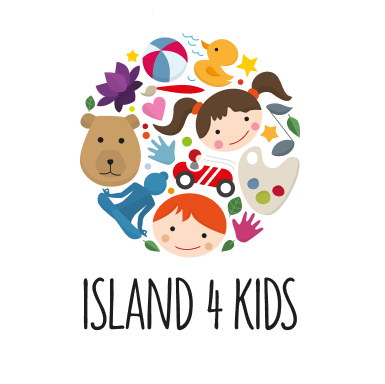What Makes a Great Daycare? A Checklist for Parents
- Ivan Soldo
- 18. Mai 2025
- 4 Min. Lesezeit
Aktualisiert: 8. Juni 2025
Choosing a daycare is one of the most important decisions you'll make as a parent. Whether you're returning to work, seeking socialization for your toddler, or simply need a few hours of support each week, finding a safe, nurturing, and educational environment is key. But with so many options—how do you know what truly makes a great daycare?
We’ve created a comprehensive checklist to help you evaluate daycare centers and make the best decision for your child and family.

1. Safe and Clean Environment
Safety is non-negotiable when it comes to choosing childcare.
What to look for:
Secure entrances and exits with restricted access
Child-proofed areas (outlets covered, sharp edges padded)
Clean classrooms, bathrooms, and kitchens
Clear hygiene protocols (especially around diapering, food, and illness)
👉 Pro tip: During your tour, notice if toys and surfaces look clean and well-maintained. Ask how often they're sanitized.
2. Qualified, Caring Staff
A great daycare is built on its team. The caregivers and teachers should not only be experienced and trained—but genuinely enjoy working with children.
Questions to ask:
What are staff qualifications and certifications?
Is there ongoing training or professional development?
What is the teacher-to-child ratio?
How long have staff members been at the daycare?
✔️ Look for CPR and First Aid certifications, early childhood education backgrounds, and low turnover rates. Consistency is comforting to young children.
3. Age-Appropriate Learning & Activities
Yes, even infants and toddlers benefit from structured play and learning!
A great daycare offers:
A daily schedule with time for free play, reading, music, outdoor time, and rest
Activities that promote motor skills, communication, and emotional growth
Montessori, or other educational philosophies
📚 Ask for a sample daily schedule and curriculum plan. It shows the center’s commitment to meaningful learning—not just babysitting.

4. Strong Communication with Parents
Parents should feel informed and involved.
Look for:
Daily updates (written or digital) on meals, naps, activities, and mood
Open-door policy for questions and concerns
Parent-teacher conferences or progress meetings
Emergency communication systems in place (texts, apps, calls)
💡 Apps like Brightwheel or HiMama are great tools many modern daycares use to keep parents in the loop in real-time.
5. Nutritious Meals and Snacks
Healthy meals fuel growing minds and bodies.
Ask:
Are meals provided, or should parents pack food?
Is the menu balanced and kid-friendly?
Can the daycare accommodate allergies and dietary restrictions?
Is mealtime used as an opportunity for learning and socializing?
🥦 Bonus points if meals are cooked fresh, follow nutritional guidelines, and introduce a variety of tastes and textures.
6. Flexible Hours & Scheduling
Every family has different needs.
Consider:
What are the daycare’s operating hours?
Do they offer part-time or flexible options?
What’s their policy for late pickup?
Are they open during school breaks and holidays?
👶 Some parents prefer full-time, while others want a few half-days per week. Great daycares are transparent and accommodating where possible.
7. Transparent Policies & Licensing
A reputable daycare should be upfront about how they operate.
Check:
Is the center licensed or accredited?
Do they have clear policies on discipline, sick days, medication, and emergencies?
Is there an open channel for feedback or grievances?
📋 Request to see their handbook or policy documents. These outline the daycare’s values and practices.
8. Warm, Inclusive Atmosphere
A great daycare feels like a second home.
Look for:
Happy, engaged children
Staff speaking kindly and calmly
Diverse materials (books, toys, art) that reflect all cultures and abilities
A sense of community among staff, children, and families
👀 Trust your instincts during your visit. If the environment feels welcoming and joyful, that’s a good sign.
9. Outdoor Play and Nature Time
Kids thrive in fresh air and open space.
Ask:
How often do children go outside?
Is there a safe, enclosed outdoor area?
What activities are offered outdoors (gardening, nature walks, etc.)?
🌼 Outdoor time improves motor skills, reduces stress, and supports healthy development.

10. Enrichment Opportunities
Great daycares go beyond the basics.
Enrichment may include:
Music, art, or dance classes
Yoga or movement
Language exposure (English, German, French, etc.)
Local excursions or in-house visitors (puppet shows, nature educators)
🎨 Ask what special programs are offered—and how often. These make your child’s day more exciting and engaging.
11. Transition & Adaptation Support
Starting daycare is a big milestone. The best centers support both kids and parents through the transition.
Look for:
Gradual adaptation plans (short visits at first)
One-on-one bonding time with a caregiver
Communication during the first weeks
Emotional support strategies for separation anxiety
🧸 Ask how the daycare supports new children. Every child adjusts differently—and empathy matters.
✅ The Ultimate Daycare Checklist
Here’s a quick summary you can use while visiting or calling daycare centers. Download 👇
Feature | What to Check/Ask |
Safety & Cleanliness | Secured entries, clean space, hygiene protocols |
Staff Qualifications | Training, experience, turnover, certifications |
Learning Environment | Curriculum, schedule, learning philosophy |
Parent Communication | Daily reports, updates, parent meetings |
Nutrition | Menu plans, allergy accommodations, food education |
Flexibility | Hours, part-time options, holiday policies |
Licensing & Transparency | Licenses, policies, emergency plans |
Atmosphere | Happy children, friendly staff, inclusive practices |
Outdoor Activities | Nature time, playground, outdoor learning |
Enrichment Programs | Extra classes, languages, arts, visitors |
Transition Support | Gradual entry, emotional care, parent support |
💬 Final Thoughts
Finding the right daycare can feel overwhelming—but it doesn’t have to be. With this checklist, you’ll know what to look for, what to ask, and how to compare your options with confidence.
At [Your Daycare Name], we believe every child deserves a loving, enriching space to grow—and every parent deserves peace of mind.
👉 Ready to see if we’re the right fit? Take a look or contact us here.
